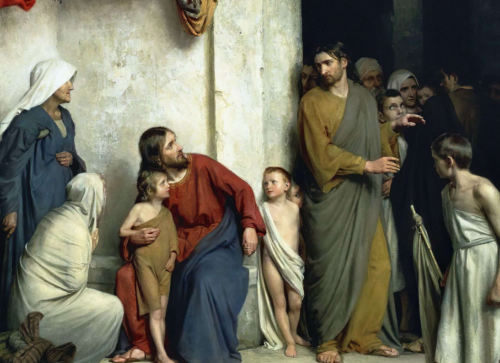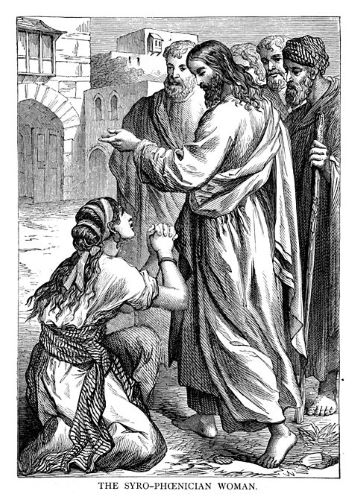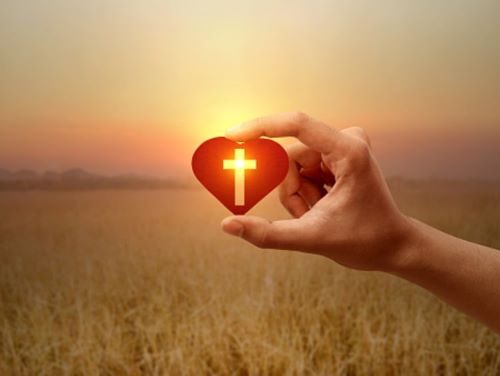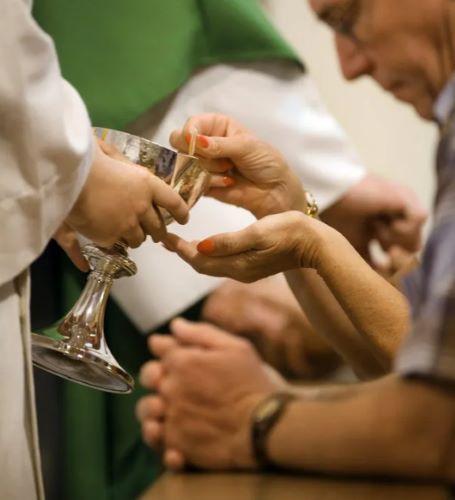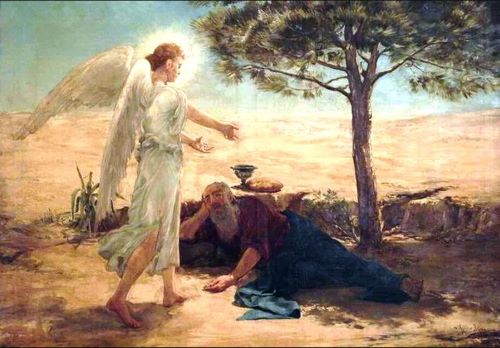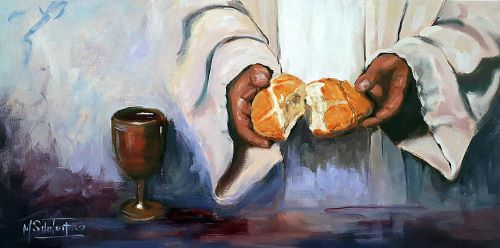Justice Measured in Light-Years
Year C
Jeremiah 17:5-10
Psalm 1
1 Corinthians 15:12-20
Luke 6:17-26
May the words of my mouth O God… speak your truth…
Jeremiah came from Anathoth… a village in the hill country of Benjamin… from a small tribe to the north of Judah… he was a descendent of Abiathar… one of the two chief priests of King David… people important enough from so long ago… that their legacy has made it down to us today… God knew Jeremiah in the womb… consecrated him… appointed and called him to be a prophet… not just to his village… not just to Judah… but to the nations…
And Jeremiah was a reluctant prophet… he wrestled with the weight of the task that had been given him… he wrote “If I say, ‘I will not mention God, or speak anymore in his name,’ then within me there is something like a burning fire shut up in my bones; and I am weary with holding it in, because I cannot…” it was painful for him to speak… so he kept silent until it hurt more not to speak…
And when we hear Jeremiah’s words of excuse… of doubt… of uncertainty… we’re tempted to think of his and other such vocations as being reserved for lofty figures in history… prophets… evangelists… missionaries… and some pastors… and some of us thank God that we are not called… we jokingly breathe a sigh of relief because we know what happens to prophets… but deep in our bones… we know what’s true… and what’s just… some of us are simply more willing to speak those words than others are…
James Howell… Pastor of Meyers Park United Methodist Church in Charlotte, North Carolina wrote… that Jeremiah seems intent on a subtle… but crucial nuance… in the way we think about life… is it about me… or is it about God… do I find meaning in myself… or outside of myself… and Jeremiah pronounces a curse on those who focus on only the human… who trust in what we are able to do… who take our cues from personal desire… who operate from what he calls… a deceitful heart…
And he offers up an image… to biblical people desperate for water… the tree symbolized a life so grounded… that it could withstand drought… and storms… we see a tree’s trunk… branches… and leaves… but the secret to the life of a tree… is not what we see… but what we cannot see… its roots… thirsty tentacles reaching deep into earth which even a hard shovel cannot penetrate… and finding hidden moisture… and so Jeremiah’s unspoken question to us… is how rooted are we in God…
Today’s passage from 1 Corinthians essentially asks us a similar question… do we believe in a literal resurrection… or something more figurative… because in many congregations there are people… who despite what the Creeds say… don’t believe in the resurrection of the body at the end of time… they’re more comfortable with the idea that one’s soul goes to heaven at the time of death… but no one knows for certain just what resurrection entails… either right after death… or not until the end of time… so there’s nothing wrong in acknowledging that the very nature of resurrection defies reason… but then… doesn’t the creation of a universe… that’s now known to be about 93 billion light-years in diameter… out of nothing… also defy reason…
In today’s Gospel… Jesus blesses those who are poor… hungry… weeping… hated… excluded… reviled… and defamed… and these are not only the homeless along Division Ave… some of them occupy the highest levels of elected office… and there may be one or two in the church… but this is the Sermon on the Plain… and it’s not quite the same as Matthew’s Sermon on the Mount… and yes… maybe some of those at the bottom of the heap are there because of their own actions… their own choices… but if we can acknowledge that… then I think we must also ask what oppressive social systems influenced those choices… and kept some less attractive doors opened… and other more attractive doors closed…
The Sermon on the Plain… on which Jesus created the hope of a level playing field for all people… appears in our Sunday readings… only when Easter falls after the first week of April… and only in those years when the lectionary turns to Luke’s Gospel… the Sermon on the Mount includes nine blessings to Luke’s four… but only in Luke… does Jesus pronounce woe to those who are rich… full… laughing… and spoken well of… and these are stark pronouncements… like in the parable of the four soils when we may wonder which kind of soil we are… but still… in our occasional dualistic mindset… we can think of woe as being the polar opposite of blessing… but woe isn’t the same as a curse… woe doesn’t convey… or even imply… hopelessness… it’s actually a call to an awareness which provides an opening for hope… it’s like saying WHOA… slow down here… stop the breakneck speed with which we’re living… take ourselves off of autopilot… be attentive and mindful…
And it can also be difficult to hear about these reversals of fortune… because we wonder whether we’re blessed or not… it can be difficult to hear about these reversals of fortune… without assigning labels to them… it can be difficult to hear about these reversals of fortune… without promoting an us vs. them mindset… where some are good and others are bad… where some are right and others are wrong… where some are in and others are out… where some are loved by God and others are not… and the hope is that we can become aware of what we’re doing… and why we’re doing it… and its systemic consequences… and begin to ask the simpler questions about what outcomes we want… do we want the best education… and health care… and food… and housing for only our own children… or for all children…
And we have to ask ourselves questions like whether we think heaven on Earth exists… and if not… do we believe it’s possible… maybe not right now… not overnight… maybe not even in a hundred years… but do we believe it’s possible… do we believe that Jesus knew what he was talking about… and do we set our course to follow him… because if we don’t… then it’s every man… woman… and child for themselves… but if we do believe it… then can we publicly profess that this is the work that we are called to do… and hold each other accountable when we fall short… and know that it’s going to take all of us… working together… letting go of labels like good and bad… and right and wrong… and even partisan political labels… and talk about the kind of world we want leave for our descendants… not only to the third and fourth generation… but to the thousandth… and like ancient growth… a tree such as this is also the fulcrum of our salvation… of our rescue from the curse… Jesus bore the curse of crucifixion on a tree… so that we could be grafted onto the tree of God’s people… so we might eat from the tree in paradise forever… when there will be no more wars… when the secular will be a dim memory… and everything will always be about the glory of God… in a universe… where justice is even bigger… than ninety-three billion light-years in diameter…

